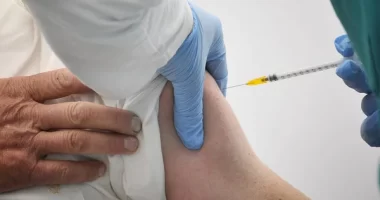THERE have been at least four deaths as a result of the Indian coronavirus variant since its emergence in the UK, new data reveals.
It’s not thought the variant can cause more severe disease. But it’s high transmissibility can ultimately lead to more deaths.
? Read our coronavirus live blog for the latest updates

1
The Indian variant B.1.617.2 only cropped up in the UK on April 10.
For comparison, the South African variant has been in circulation since mid-December, and has caused 12 deaths.
The Indian variant has been detected at least 1,255 times in England (1,313 in the UK) up until May 5 – double the number a week prior.
Cases are most prevalent in London and the North West, Public Health England (PHE) revealed today.
Bolton has been highlighted as a hotspot in recent days leading to a testing blitz, along with Sefton and Blackburn.
There is evidence it can reinfect people who have immunity against Covid from prior infection – but PHE said this is “expected with any prevalent variant”.
It does not necessarily mean that vaccines will not work against it, as officials say there is “no evidence” the variant weakens jab efficacy.
PHE said the variant “displays an increased growth rate”, suggesting it can spread faster than the Kent strain – an advantage scientists have feared.
The Kent variant threw England into a third lockdown. And although vaccines have put the UK into a much better position, there are still millions unvaccinated.
It comes amid mounting pressure on Boris to delay the easing of lockdown restrictions to manage the Indian variant.
The PM will appear in Downing St at 5pm to update the nation, joined at the podium by chief medical officer Professor Chris Whitty and chief scientific adviser Sir Patrick Vallance.
Yesterday the PM admitted to being “anxious” about the mutation and said new measures may be needed in hotspots where it has emerged.
And he refused to rule out the possibility that the final stage of the roadmap on June 21 may have to be delayed.
But it’s likely that the press conference tonight will focus on how to combat the India variant with surge testing and vaccines, and not on major changes to the roadmap.
Does the Indian variant cause more severe disease?
Sharon Peacock, director of the Covid-19 Genomics UK Consortium (COG-UK), said based on current evidence, there is nothing to suggest the Indian variant causes more severe disease than the Kent variant which is dominant in the UK.
However, she warned that a lack of evidence is not the same as no evidence, and that there is just not enough data at the moment.
Speaking at a press briefing, she said the UK is in a “very good position” against emerging coronavirus variants, with vaccines working and disease rates falling.
Cases appear to be on the rise as a result of the most recent relaxation.
The ZOE Covid Symptom Study app reported a 65 per cent increase in symptomatic cases in the past week.
However, the Office for National Statistics (ONS) say cases remain on a downward trajectory based on its own swabbing of the population.
Around one in 1,340 people in private households in England had Covid in the week to May 8 – down from one in 1,180 the previous week, according to latest ONS estimates.
It is the lowest figure since the week to September 5, when the estimate stood at one in 1,400.
Post source: The Sun










